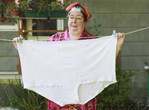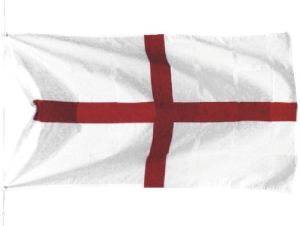[picapp src=”0604/dbb9c12f-f79f-4918-ab1c-3e94e781cd00.jpg?adImageId=6128382&imageId=719096″ width=”500″ height=”391″ /]
Now look lively! Sit up and pay attention, as I may be setting a short test at the end of class today…
I went to look around a prospective school for my daughter on Saturday. A Mexican friend asked me (via Skype) if it was a public or private school and when I replied that in the UK public school IS private school all I got back from her was “??!?!!?”.
So how can ‘public’ school be an expensive fee-paying school? Well, as with most of my answers on this blog, it all goes back a long way in history. A long, long way; the Middle Ages, in fact (the first written reference to a public school was in 1364). Back then, peasants weren’t educated at all and the landed gentry educated their sons (and occasionally their daughters) at home, usually with a resident clergyman.
So the first schools as we know them today were called ‘public’ schools to denote that they were open to public admission, not behind closed doors in a private house. In the early days, most public schools were run by monasteries. A few boys were admitted on scholarships paid for by charities and the rest were the sons of middle or upper class gentlemen who could not afford private tutors at home, but could afford to pay the monastery to educate their sons. Probably the most famous public school in Britain is Eton College (founded in 1440), where Princes William and Harry received their schooling (as did “House” actor Hugh Laurie and explorer Sir Ranulph Fiennes). And Eton still offers a few scholarships to the brightest and most deserving pupils.
Free schooling for all was not available until the Victorian era (19th Century) and even then it was only for children aged between five and ten years. By that time, the term ‘public school’ was well established as meaning a fee-paying school. So non-fee-paying schools attended by most children are called “State” schools.
And, for those of you wondering, the school system is different here, too. My little one will start with a foundation year (optional, mornings only) aged three, reception class at four and ‘proper’ school lessons in Year One from five years of age (exams follow, with GCSE’s at age 16 in Year 11 and A-levels at age 18 before going on to University).
We loved the school we visited. And it turns out the uniform is a wee kilt in what looks suspiciously like our family tartan! The same wee kilt that we had unknowingly dressed our daughter in for the visit…spooky!

 The British sense of humour is world-renowned for being, well…different. You only have to be familiar with Monty Python or The Office to realise that slapstick is not our National style. And whereas we buy a lot of our dramas and documentaries from the US (some would say ‘most’), we still seem to prefer home-grown laughs to imported ones.
The British sense of humour is world-renowned for being, well…different. You only have to be familiar with Monty Python or The Office to realise that slapstick is not our National style. And whereas we buy a lot of our dramas and documentaries from the US (some would say ‘most’), we still seem to prefer home-grown laughs to imported ones.





 You wouldn’t believe the number of things that spring to mind, now I’m writing this blog.
You wouldn’t believe the number of things that spring to mind, now I’m writing this blog.